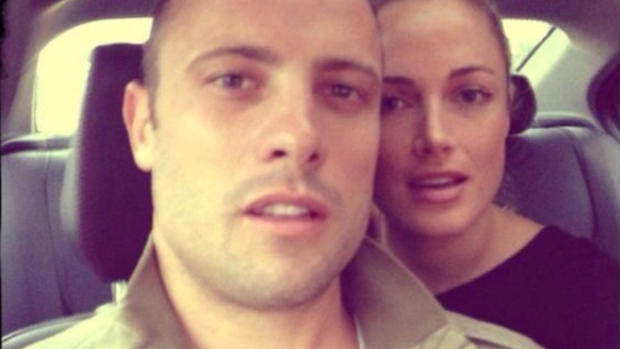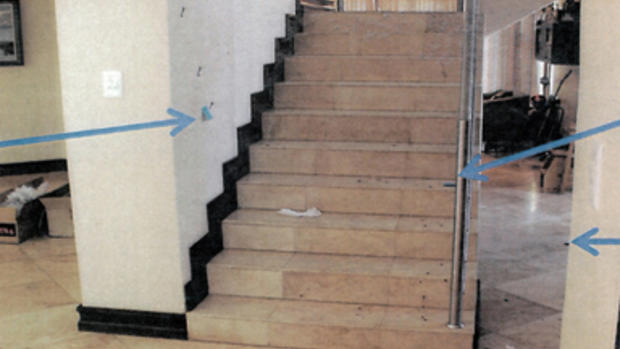Oscar Pistorius' fate hangs in balance as trial winds down
Thirty-seven witnesses, 39 days in court over four months, and it all comes down to the next two days.
The gloves will be off once again Thursday as South Africa's North Gauteng High Court begins hearing closing arguments in the murder trial of the man dubbed the Blade Runner.
Oscar Pistorius is charged with shooting his girlfriend Reeva Steenkamp four times through a locked bathroom door on Valentine's Day last year. The closing arguments could be the most pivotal days of the trial - capable of pushing a verdict in either a guilty or non-guilty direction. Judge Thokozile Masipa will be presented with arguments trying to convince her that Pistorius either shot his girlfriend in cold blood or that he is an anxious, paranoid man who made a terrible mistake.
Chief prosecutor Gerrie Nel will once again lock horns with defense lawyer Barry Roux. It gives both parties a chance to paint a strong narrative of their version for the judge. In the absence of a jury system in South Africa, it is up to Masipa and her two assessors to determine which version is the most plausible.
Kelly Phelps, a law lecturer at the University of Cape Town, says that at the end of the day, "it's all about how persuasively either side has argued."
Closing arguments are seldom theatrical in South African courtrooms but focused more on the technical aspects of the law.
The state's case is that Pistorius in all likelihood had an argument with Steenkamp, chased her to the bathroom where she locked herself in fear. Nel will rely on ear witnesses - neighbors who told the court they heard the blood-curdling screams of a terrified woman.
Crucial also is the ballistic evidence which shows that Steenkamp was in a defensive position and would have had enough time to scream between the four shots. The state used text messages sent by Steenkamp to Pistorius in which she said she was sometimes scared of him.
And there is the potentially troublesome piece of evidence for the defense that the pathologist provided - namely that Steenkamp's stomach contents showed she ate just a few hours before her death. Pistorius said they went to sleep early and did not wake until just before the shooting.
Nel repeatedly stated in court that Pistorius' testimony cannot be believed and that he is a liar. While cross-examining Pistorius in April, Nel demanded that Pistorius admit his crime. "You killed her, admit it, you killed her. Say, 'I shot and killed her.' I will say that she ran away screaming. She ran to the bathroom to get away from you. You knew Reeva was behind the door and you shot her."
Pistorius has denied this. His version argued by his defense team headed up Roux is that he thought Steenkamp was a burglar and he shot her by mistake. But testifying in his own defense, Pistorius fumbled and sobbed his way through his testimony. He forgot key parts of his own evidence, contradicted himself and was evasive.
His legal team said the screams of "a terrified woman" should be attributed to Pistorius whose voice rises in pitch when he is anxious, causing him to scream like a girl. Roux will no doubt challenge the state's failure to prove conclusively that the couple had an argument saying they were in a loving relationship at the time. Pistorius' ballistic expert argued that Steenkamp would have died instantly allowing no possibility of a scream.
Ironically Pistorius' entire career has been devoted to downplaying his disability and yet in court he emphasized it. The double amputee's legal team argued that he was paranoid and had an exaggerated "flight or fight" response causing him to startle easy and possibly over-react.
But the difficulty for the defense team may be Pistorius himself. He changed his defense three times during the course of the trial. Initially he pleaded putative defense - meaning danger was approaching and he had to defend myself. He then changed it to involuntary action - he wasn't thinking and the shots just went off. His legal team even tried to argue that he suffered a generalized anxiety disorder (GAD) as a third line of defense but this was shot down after Pistorius underwent a month-long psychiatric evaluation which concluded he did not have GAD.
At the end of the day the burden of proof rests with the prosecution over the next two days. The judge will set down a date for verdict between one and four weeks after closing arguments.

